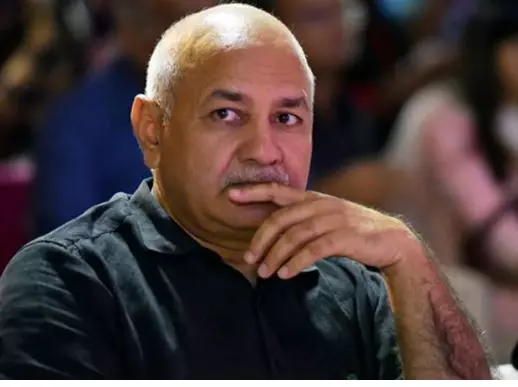
Delhi liquor scam case: other accused got bail after giving statements against Sisodia, SC told
text_fieldsNew Delhi: Senior Advocate A M Singhvi, appearing for AAP’s Manish Sisodia in the Delhi liquor scam case, told the Supreme Court that though there are no valid proofs except vague statements, those accused in the case secured bail by giving statements implicating Sisodia.
The Supreme Court’s two-judge bench, presided over by Justice Sanjeev Khanna and Justice S V N Bhatti, questioned why the political party, alleged to have received the proceeds of the crime, had not been named as an accused in the case.
The court's inquiry stemmed from the Prevention of Money Laundering Act (PMLA), with Justice Khanna emphasizing that the political party should be held accountable as the beneficiary of the alleged wrongdoing.
The bench posed these queries during the hearing of the bail plea filed by former Delhi Deputy Chief Minister Manish Sisodia, who was arrested on February 26.
Additional Solicitor General (ASG) S V Raju, representing the investigative agencies, was asked to explain the absence of the political party as an accused. The ASG assured the court that he would address the query during the next hearing scheduled for the following day.
The court also sought clarification on the examination of Cabinet notes, with Justice Khanna pointing out potential limitations imposed by Constitution bench judgments. The ASG was tasked with explaining the court's jurisdiction in examining Cabinet notes, considering Delhi's unique status as a Union Territory.
Meanwhile, Senior Advocate A M Singhvi, representing Sisodia, argued that the agencies were relying on vague statements to establish a link between Sisodia and co-accused Vijay Nair. Singhvi emphasized the lack of specific allegations and a money trail connecting Sisodia to the alleged crimes.
Singhvi contended that Sisodia had been unfairly denied bail while other accused in the case had secured their release. He urged the court to consider the broader context, suggesting that high-profile individuals faced greater scrutiny and challenges in obtaining bail.
Highlighting the collective decision-making nature of the liquor policy, Singhvi asserted that the new policy aimed to prevent cartelization and increase revenue by capping unreasonable profits at 12%. He argued that leaks in the old policy necessitated a change, while some accused sought to maintain the status quo.

















